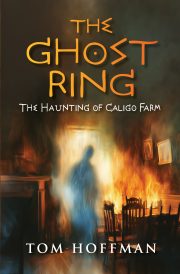Character Development Lessons From Video Games
By Samantha Garner
When you think of video games, do you think of rich character development? Unfortunately, many people believe video game characters are either implausibly indestructible, or worse: boring. As a fan of fantasy and action role-playing video games, I’ve seen that belief transcended many times. As an SFF writer, I often find inspiration in the complex and believable characterization found in video games. Whether or not you’re a gamer, I think you’ll find these character development lessons from video games useful in your own writing too.
Strong motivation for the main character
SFF writers are no strangers to worldbuilding. Creating rich settings and populating them with unique characters is our bread and butter. How, then, to reveal these glorious worlds to our readers without sounding like a textbook?
In Assassin’s Creed: Odyssey, our protagonist Kassandra (or Alexios, if you choose the male protagonist) experiences loss and tragedy both in childhood and during the game’s events. She’s a lone wolf, but we see her form caring bonds with her eagle companion Ikaros and the orphaned child Phoibe. Sure, Kassandra’s a mercenary who’s willing to help both sides in a war to sabotage each other, but she always looks out for the downtrodden caught in the middle. Learning her complexities and the moral lines she’d never cross, helped me make choices that felt true to her character.
Eivor, the protagonist of Assassin’s Creed: Valhalla is a little cockier and more reckless. Yet, as the de facto leader of a Viking settlement in England, she has a lot of people relying on her for protection. With Kassandra I spent hours running around Ancient Greece getting up to shenanigans. With Eivor I tried to find that balance between responsibility and doing whatever I wanted despite the consequences.
Both characters had defined motivations and personalities that informed how I played their specific games. Through them the worldbuilding, plot, and setting were revealed organically.
Believable secondary characters
One of my favourite video game series is Dragon Age, comprising RPGs in which your character embarks on quests aided by a small party of companions. Each of these companions has their own histories and personalities. Not only does this ensure some variety in your party, but it means that each character acts realistically. They don’t remain static. They don’t agree with everything you say or do. In fact, there are certain quests where, depending on who’s in your party at the time, you’ll be met with vocal disapproval of your decisions.
And while Skyrim isn’t the first game that springs to mind when I think of character development, I do love the way it presents opposing groups that aren’t always obviously Good or Bad. There’s nuance, and you can see the perspective of both sides even if you strongly disagree with one. This makes the world feel lived-in and adds to the immersion created by strong character development.
Realistic interpersonal dynamics
The thing that keeps me coming back to the Dragon Age series is the interpersonal interactions between my player character and my companions. Whether it’s slowly building up Alistair’s confidence through dialogue choices or arguing with Sera for being patronizing about elven history, my character’s words and deeds have a direct influence on the people in her life.
One of the things I enjoyed about the much-maligned Dragon Age II was the way I could build rivalries with my companions. More than a black-and-white “I hate you” mechanic, rivalries added an interesting dimension to the relationships. I did one playthrough with Fenris as a romance option the traditional way, supporting his ideas and actions. Then, I tried another playthrough with Fenris as a rival romance option, challenging each other while remaining compassionate. Rather than being antagonistic, our dynamic became a bit more headstrong. It was two people trying to square their individual beliefs with their feelings for each other. A mage in a relationship with a warrior who has a bad history with mages? That is a writer’s dream!
With rivalries, my companions and I completed our quests even if we argued about some things. Navigating differences while supporting each other in a shared goal is a realistic lesson in relationship-building. What can we learn about our characters from relationships that aren’t effortlessly harmonious? What’s behind those disagreements? How can this deepen the story overall?
For me, the most rewarding video games and the most rewarding fiction show logical progression in character relationships, with friction and shifting perspectives along the way. This helps character moments feel earned and satisfying.
Nuanced character roles
Those who have played games like Dungeons & Dragons and other RPGs are familiar with character classes—defined roles like rogue, bard, or wizard. In the Dragon Age series, it’s set up so that you can choose three people from three classes to make up your party: typically a mage and a rogue for distance attacks, and a warrior for bashing things up-close. The mage is often your healer, and the rogue can also pick locks and disarm traps. In video games, this makes sense. It’s easily parsed and you can quickly decide which companions to bring on certain quests.
In the SFF writing world, it’s tempting to have your characters build their personalities from these roles. You might imagine a healer mage is naturally nurturing, a rogue is sneaky and cunning, or a warrior is brash and physical. However, while it does make sense for a character’s role to be informed by their personality (or vice versa), what interesting things can happen when they behave against these expectations?
For example, Dragon Age: Origins’. Alistair is a warrior, but he’s also charmingly awkward and dorky. And whenever I play as a rogue character, I tend to rush into fights alongside my warrior because I’m impatient (not always a great idea). How can your own characters transcend the SFF roles they perform in their world? What impact will this have on them, and the story as a whole?
Books and video games are both highly immersive forms. In their own ways, they allow us to experience a unique world through the protagonist’s eyes. We have complex interactions. We learn other viewpoints. Sometimes we openly disagree and work out how to navigate the relationship despite that. I hope these character development lessons from video games have given you some ideas for creating believable, dynamic character relationships in your SFF writing.
 Samantha Garner’s debut novel, The Quiet is Loud, was shortlisted for the 2022 Kobo Emerging Writer Prize. A Canadian of Filipino-Finnish background, Samantha’s character-driven fantasy and science-fiction novels explore themes of identity and belonging. She loves writing nuanced relationship dynamics, atmosphere over action, and outsider characters doing their best. She’s endlessly inspired by history, mythology, and narrative-rich video game worlds.
Samantha Garner’s debut novel, The Quiet is Loud, was shortlisted for the 2022 Kobo Emerging Writer Prize. A Canadian of Filipino-Finnish background, Samantha’s character-driven fantasy and science-fiction novels explore themes of identity and belonging. She loves writing nuanced relationship dynamics, atmosphere over action, and outsider characters doing their best. She’s endlessly inspired by history, mythology, and narrative-rich video game worlds.
When not writing, Samantha can be found taking too many photos of trees and rambling to a loved one about the latest historical fact she’s learned. You can find her online at samanthagarner.ca or on most social media at @SamanthaKGarner.


